Impressive intelligence, medium build, highly trainable – Border Collies are the perfect breed for service work. Border Collies as service dogs have helped countless individuals with their specific health conditions. This breed is full of energy to be of service as long as trained and raised properly. In the hands of the right trainer, a Border Collie can become a stellar working dog without its nippy and intense nature.
What is a service dog?
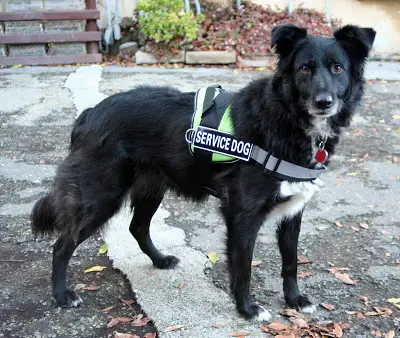
Service dogs are canines that underwent special and exclusive training for various tasks. They are groomed to provide assistance to a person with a disability or health problem.
Take note that service dogs are certified under the Americans with Disabilities Act or ADA. This means you simply can’t declare your dog as a service dog if it didn’t go through the rigorous training process.
Under the ADA, a service dog is placed on a handler with a mental or physical impairment that limits his or her major life activities. Service dogs are intended to ease this limit through physical assistance.
Some of the most common service dogs are guide dogs for the blind, psychiatric service dogs for those with PTSD/depression, and medical alert dogs for diabetic handlers. There more types of service dogs trained for various tasks.
Also, service dogs are trained from puppyhood, so service dog organizations won’t pick your dog and transform it into a service canine. Some would even breed their own dogs to guarantee the health and quality of the canines.
Nevertheless, many dog breeds qualify as service dogs. Some of the popular options are Golden Retrievers, Poodles, Labrador Retrievers, Border Collies, and Boxers.
Basically, a service dog should possess these general characteristics:
- Enjoys being around people
- Ability to focus on a task
- Excellent memory and recall
- Eager to please
- Calm temperament
- Medium to large build for physical support
- Highly trainable
- Not easily distracted
All of these can be taught to a dog through proper training. In fact, most service dogs will undergo two years of training before being placed on a handler. This is to guarantee their skills, especially when it comes to Border Collies.
What makes Border Collies excellent service dogs?
Border Collies will become excellent service dogs if trained well. The following are some of this breed’s characteristics that make it a great candidate for the job:
✔️Intelligence
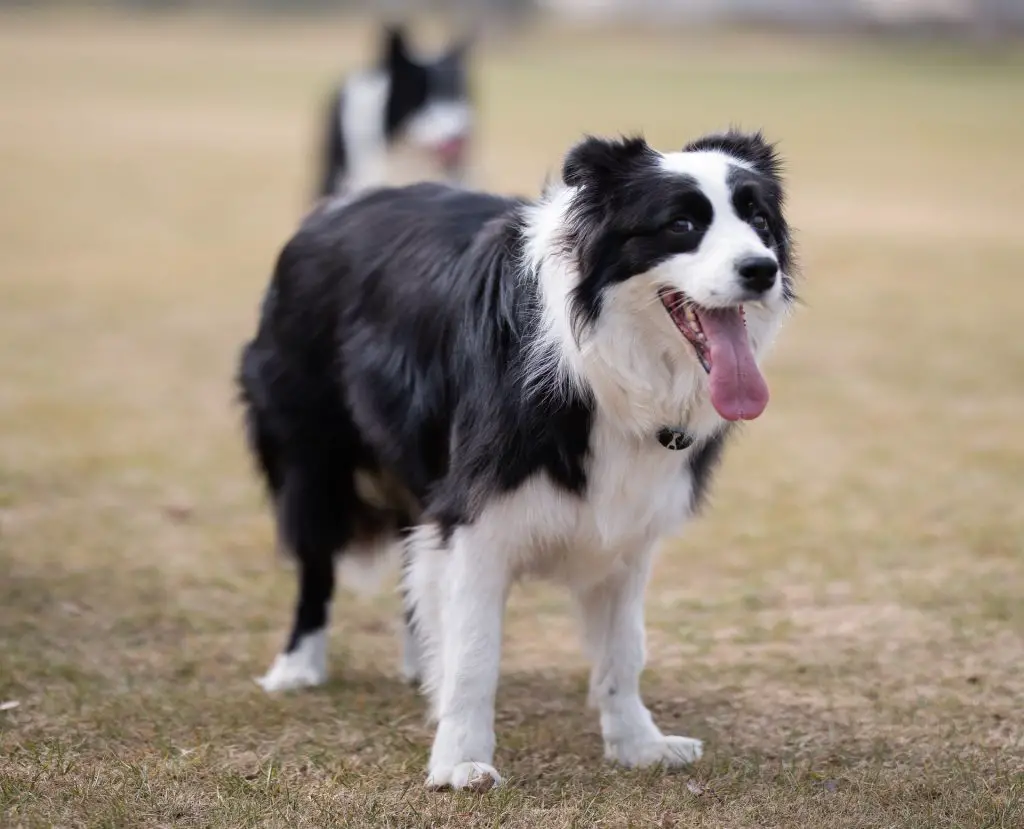
Border Collies are lauded as the most intelligent dog breed. There’s no wonder why they are a perfect choice for service work. They can easily memorize and recall words, gestures, scents, and sounds, especially when associated with the desired response.
Due to their intelligence, Border Collies would be easy to train. A dedicated trainer can easily shape this canine’s personality into the one that suits the expected outcome from a service dog.
✔️Energy level
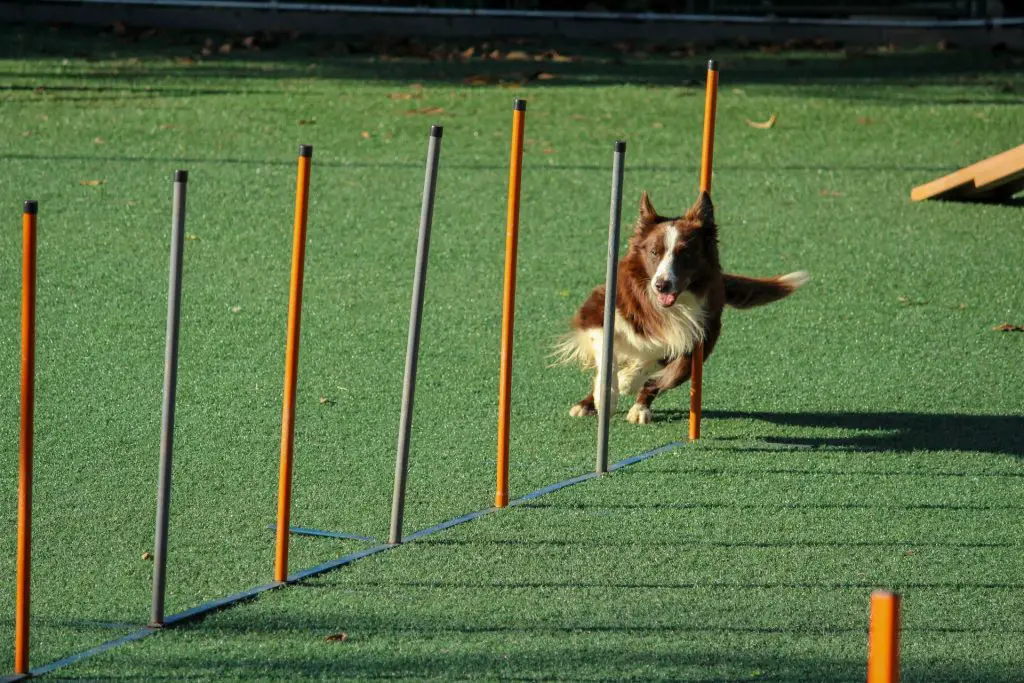
Another advantage of Border Collies to other breeds is its energy level. While it may appear intense at first, proper training will help channel such energy into something productive. A Border Collie can be trained to run fast to reach its handler or retrieve medication fast during a medical emergency.
Also, this means that Border Collies have excellent stamina. It’s the same reason why they excel in agility and sporting events. This will help them introduce their handlers to a more active lifestyle, a perfect pair for individuals with psychiatric conditions.
✔️Medium build

Border Collies are medium dogs, which allows them to offer physical assistance to their handlers. They may not be as buffed as Newfoundlands or Saint Bernards, but Border Collies can surely open doors, push things, and carry heavy items around.
Also, the size of a Border Collie makes them easy to maintain in terms of grooming. They don’t consume a lot of space in the house, though they won’t thrive in apartment settings.
✔️Sensitive to changes
Border Collies are sensitive dogs, which some find disadvantageous. But when it comes to service work, this is actually beneficial. Such sensitivity allows Border Collies to detect changes in their owner’s body, habits, and gestures. This way, the dog can be trained to pick up cues based on body movements and reactions.
For example, a Border Collie can identify danger if the person uses a hand signal or raises its eyebrow. Some Border Collies can even detect changes in breathing patterns and associate it with the need to retrieve medication.
✔️Protective attitude
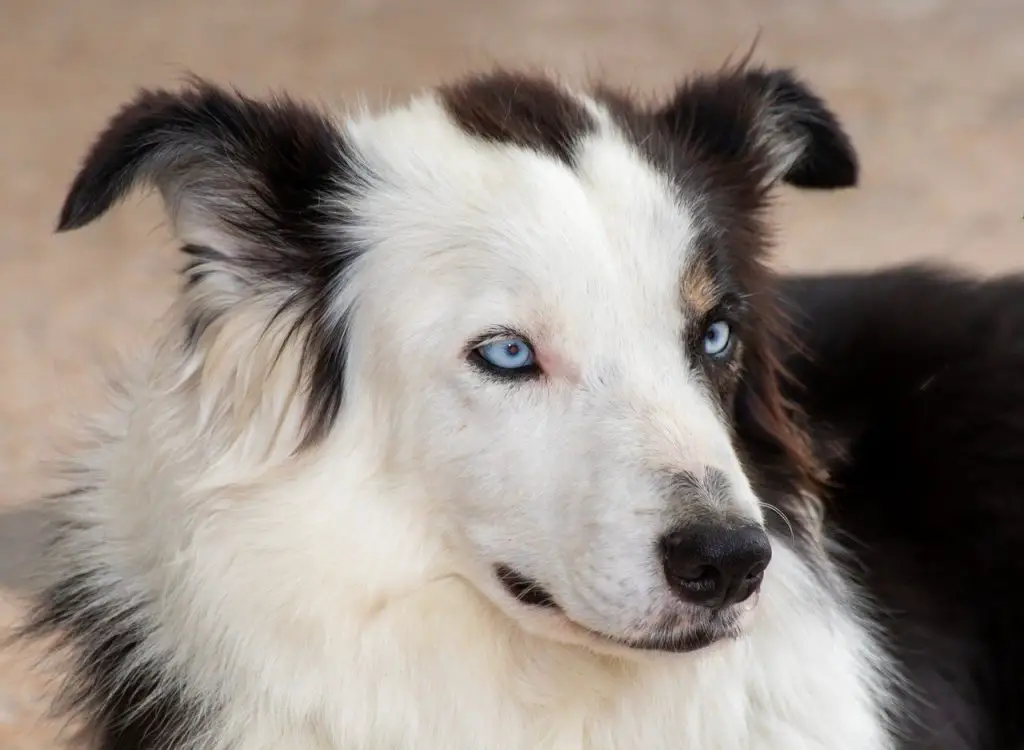
As herding dogs, Border Collies tend to have a sense of protectiveness toward their masters. This can be used to train the dog to serve as a guard to its handler. It will come in handy if an intruder tries to break into the handler’s house.
However, you should know that there’s a big difference between guarding and aggression. Proper socialization and training are necessary to ensure that the Border Collie service dog won’t develop negative behavior.
✔️Eagerness to work
Border Collies are happy when they are given a job. As service dogs, these canines will surely love to accomplish the commands of their owners. They are hardworking without asking anything in return. As long as you give them ample exercise and mental stimulation, Border Collies will be more than happy to serve you.
Border Collie characteristics every trainer should focus on
While Border Collies are excellent service dogs, they require a lot of work. Trainers need to focus more on these aspects to ensure that the dog will be well-disciplined:
- Nipping and herding. Border Collies were bred to herd, so it’s second nature for them to nip. Still, a Border Collie can be trained out of it, but it requires a lot of hours and effort.
- Aloof behavior. Border Collies require a lot of socialization to curb their aloof behavior. They tend to be watchful of strangers, which might become a problem in public spaces. Proper training and desensitization are the key here.
- Intense energy. For a Border Collie to become a well-disciplined service dog, the trainer should know how to make the most out of this breed’s energy. Also, the dog should learn to practice restraint.
- Dislike of other dogs. While service dogs are required to be raised as the only dog in the house, they should be desensitized enough toward other canines. This way, dog fights won’t erupt whenever you have to take the dog to public spaces.
- Chewing. Border Collies love chewing and shredding toys, so it’s important to train them out of it. Professional service dog trainers will use various techniques to dampen this habit, so it won’t become a problem once the Border Collie is placed to a handler.
Overall, these issues can be fixed with proper and long-term training. Some Border Collies will spend more time in training than other breeds because of these very same reasons.
As much as Border Collie service dogs are great to have, they come at a high cost. On average, a service dog will cost around $15,000 to $30,000 regardless of the breed. Some would even cost as much as $50,000, depending on the skill they are trained for.
The cost of service dogs
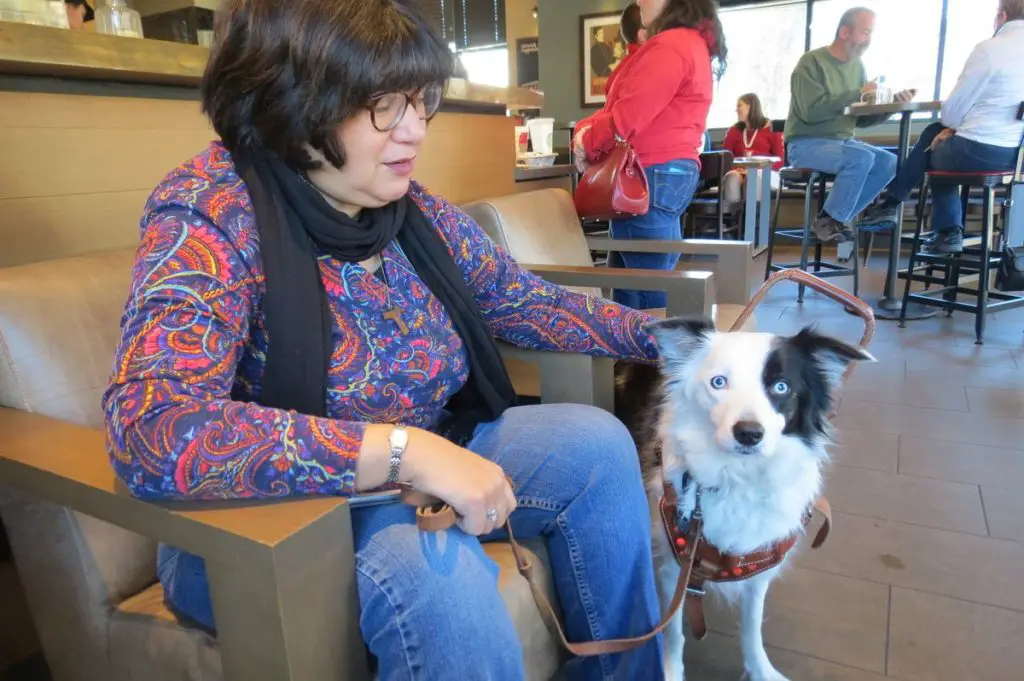
This cost covers the canine’s food throughout the duration of its training and stay in the organization. It also includes veterinary care, medicine, supplies, and professional fees for training. Also, the dog’s cost straight from the breeder will add up to the overall price.
Just take note that, in most cases, you can’t choose the breed of the service dog you’re going to get. The service dog organization will be the one to decide if a Border Collie service dog suits you well.
But what if you need a service dog and can’t afford it? There are many organizations and foundations that could help. The following are some of them:
- Petco Foundation. The Petco Foundation offers service animal grants for individuals that will qualify for their program.
- The Seeing Eye. This organization is dedicated to providing guide dogs for the visually impaired. They are one of the oldest grant programs in this field, and they’ve helped hundreds of people with their initiative.
- Service Dogs For America. While they don’t always offer grants, this organization provides service dogs for a very low cost.
- International Association of Assistance Dog Partners (IAAP). The grants from this organization are available only to members, and applications must be submitted by veterinarians. They provide grants for hearing, guide, and service canines.
- United States Department of Veterans Affairs (VA). For military veterinarians, the VA provides veterinary assistance for the service animals. While they won’t pay for the dog, they will shoulder other expenses involved in keeping the canine in your care.
- Crowdfunding. Another way to cover the expense of getting a service dog is by starting a crowdfunding campaign. Online, you can utilize many platforms to reach a lot of people. This will help you raise funds needed to secure a service canine.
Is a Border Collie the right service dog for you?
If you’re likely to get a Border Collie as a service dog, you must consider a few points.
First, where are you living? Border Collies don’t thrive in apartments and cramped spaces. You should have a yard where the dog can get its exercise. Otherwise, the dog might start to form bad habits in your home.
Aside from that, you should also consider your experience in raising a dog. Border Collies aren’t for first-time owners, so you have to be prepared. This is beside the fact that these canines will be trained before being handed to you.
Lastly, ask yourself if a Border Collie suits your lifestyle. This is an active breed, so expect a lot of running and exercise. If you’re mobility challenged, you’re better off with a more laidback canine like a Golden Retriever or Poodle.
Nevertheless, the service dog organization will always consider these points before assigning a dog to you.
Frequently Asked Questions
Q: Are Border Collies good emotional support dogs?
A: Yes, Border Collies can be excellent emotional support dogs if trained well. Take note that emotional support dogs don’t really require special training. You can declare your pet as your emotional support dog, but it will not qualify for the protections under the Americans with Disabilities Act (ADA).
Q: What jobs are good for Border Collies?
A: Border Collies were bred as herding canines, so they thrive on a job where they can use their intense energy. Still, this breed can also be trained as service dogs. However, they have to undergo rigorous training to curb their nipping, biting, and intense energy.
Q: Are Border Collies used as police dogs?
A: Yes, Border Collies are one of the top picks when it comes to police work. This is due to their intelligence, versatility, and eagerness to be at work. They are joined by the likes of Belgian Malinois, Doberman Pinscher, Bloodhound, Rottweiler, and Labrador Retriever.
Q: Is it illegal to pretend that your dog is a service dog?
A: Many states have passed laws that make false service animal claims illegal. While the ADA is yet to sharpen its teeth on penalties for faking a service dog, many localities are bridging the gap to go after violators. Take note that putting a service dog vest on a canine even if it doesn’t qualify as such is already considered misrepresentation. You’ll be in trouble with the law.
Q: Can I train a service dog myself?
A: No, because the ADA requires a service dog to undergo professional training before being certified. Professional service dog trainers have passed stringent requirements and training. This is why you just can’t train your dog and declare it as a service dog without going through the legitimate process.
Final words
Border Collies as service dogs isn’t a new thing. These canines have been taking various jobs ever since they were bred. From herders, companions, family pets, and service animals, Border Collies are very versatile. They just need more work in terms of training and socialization to become stellar working dogs.
What do you think of Border Collies as service dogs? Share your thoughts below!


